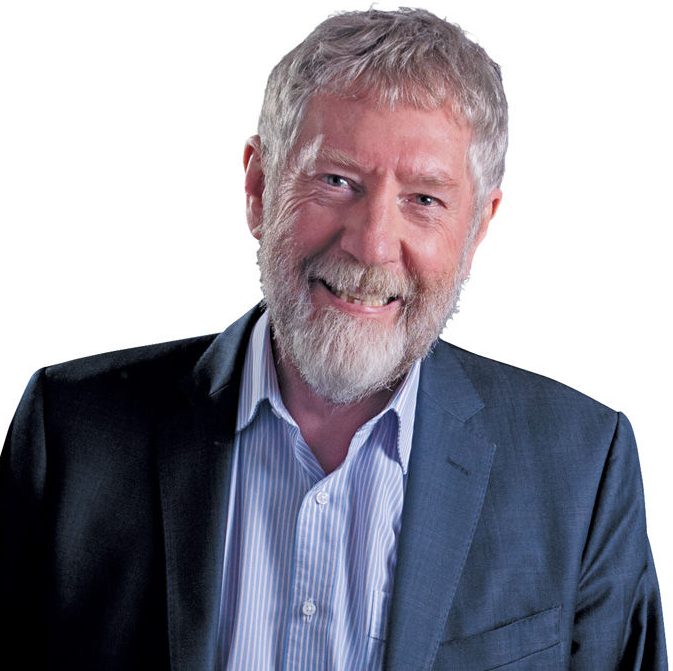
“Investing in vaccines saves time, money and lives and it leads to healthier, sustainable healthcare systems and communities,” writes columnist MICHAEL MOORE.
WINTER is a time when flu and flu-like diseases flourish. This means additional challenges for our workplaces and hospitals at a time when the community is trying to make up ground after the first four covid waves. It is time to vaccinate.

The good news is that the current (or fifth) covid wave does not appear to be as significant as earlier ones. This wave has grown slowly since February and has accelerated in Canberra over the last few weeks.
However, it is difficult to ascertain the extent of the current spread of covid as governments have stopped compulsory testing and do not require reporting of positive rapid antigen tests (RAT+).
The impact of vaccination along with the number of people who have already contracted covid plays a key role in reducing the impact of this wave. However, there are still many people who are vulnerable. This includes the elderly and immunocompromised.
There is an exacerbating factor. This year the covid wave closely coincides with other respiratory infections. These include influenza and RSV (respiratory syncytial virus). The combined impact of these infectious diseases is a concern for individuals and hospital management.
The combined impact should be a concern for everyone. The action for individuals is very clear. Although there is no vaccination yet for RSV, vaccinations are readily available for influenza and for covid.
The advantage of these shots is not just regarding personal health. It also improves our health system as a whole, limits the spread to other people and plays a role in protecting the elderly and those who are immunocompromised.
Since 2020 there have been clear instructions from governments on actions required to avoid covid infections and what to do if the disease has been contracted. It is not so clear now. The ACT government website explains the actions appropriate for those who are working in healthcare settings such as hospitals and aged-care facilities.
However, I was not able to locate clear instructions about ordinary people operating in their workplace. How long after a covid+ test, for example, should an individual wait before going back to work? Getting a medical certificate from a pharmacy after a RAT+ for covid seems impossible.
Understandably, like pharmacists, doctors do not want covid+ patients in their surgeries. A telehealth alternative does work – but at a significant cost to the individual. The worst thing, as we learnt through the pandemic, is to “soldier on” by going to work and infecting others.
A key issue for all governments is investing in prevention. Vaccination has an important role to play in prevention and is a key component of healthy ageing. However, the current focus remains largely on vaccination of children. Internationally, this focus needs to change to an all-of-life approach.
Most adults in Canberra have regular vaccinations against tetanus/diphtheria and pertussis. Additionally, the HPV vaccination has been key in reducing (and hopefully eliminating in time) the spread of cervical cancer.
As the population ages, other vaccinations ought to become a fundamental element of preventive healthcare. They include vaccinations against shingles, influenza, covid and pneumococcal. Additionally, keeping up with a pertussis vaccination helps to protect newborn babies by reducing the spread of whooping cough.
Investing in vaccines saves time, money and lives and it leads to healthier, sustainable healthcare systems and communities. The challenge for governments is to encourage widespread vaccination as part of normal healthcare across the life course. The first step is to remove as many barriers as possible to make it easy to vaccinate.
It was not so long ago that the prime source of vaccination was the GP. However, there has been a sensible transition to pharmacy for covid and influenza vaccination. Let’s hope this convenience and cost-cutting trend continues.
In making decisions about reducing barriers to vaccination, governments need to be cognisant of equity. The lowest on the socio-economic scale are statistically more vulnerable to winter (and other) infectious diseases. Government policies must consider how to reduce inequity.
Apart from improving personal health outcomes, being fully vaccinated assists in reducing the times for people waiting for elective surgery. Reducing demand on our hospitals will minimise the number of times that surgeries are postponed and improve health outcomes for many in Canberra and surrounding NSW.
Michael Moore is a former member of the ACT Legislative Assembly and an independent minister for health. He has been a political columnist with “CityNews” since 2006.
Who can be trusted?
In a world of spin and confusion, there’s never been a more important time to support independent journalism in Canberra.
If you trust our work online and want to enforce the power of independent voices, I invite you to make a small contribution.
Every dollar of support is invested back into our journalism to help keep citynews.com.au strong and free.
Thank you,
Ian Meikle, editor









Leave a Reply